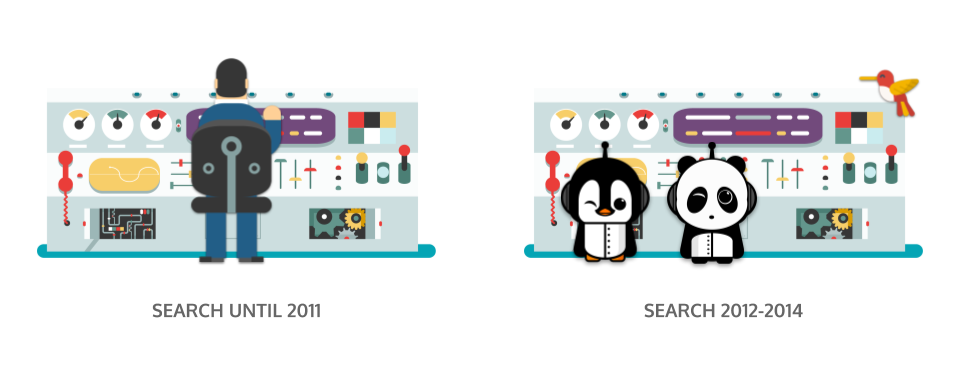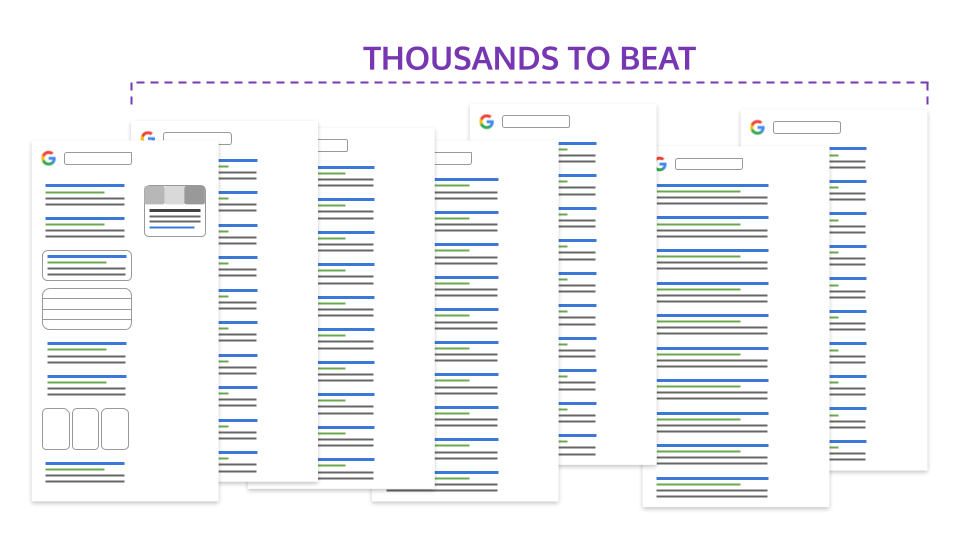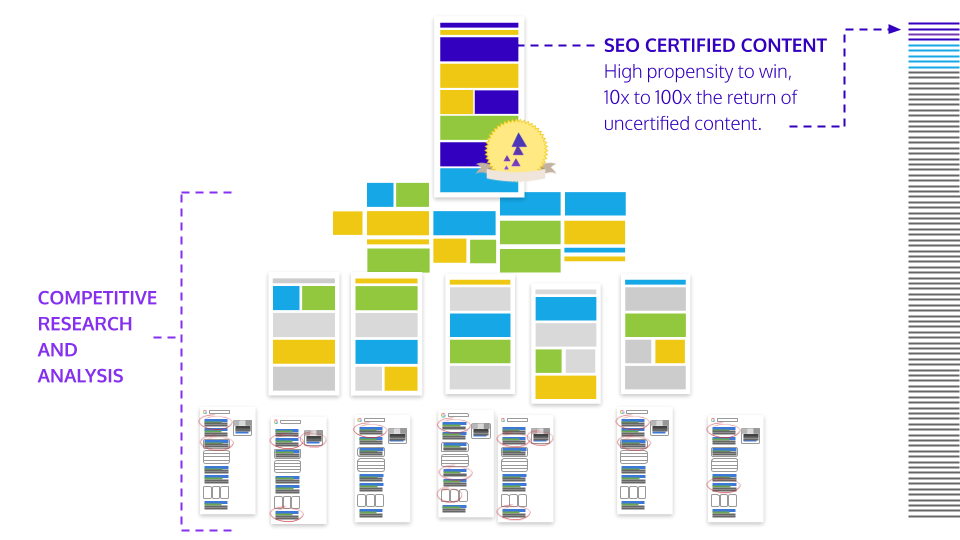How to Build an SEO Growth Strategy that Transcends Algorithm Changes
The days of trying to optimize a website for Google’s algorithm are over. In the not-so-distant past, marketers would write content or structure a website to target the ranking factors that mattered most; the ones who got their site just right for Google were rewarded with higher rankings.
SEO was focused on, “What is the algorithm doing? What are the ranking factors?” And, with every algorithm update, marketers would pivot—trying to outsmart Google and be the first to address the new ranking factors.

Every so often, the SEO community was rocked when Google rolled out big algorithm updates; some pages dropped in the SERPs, others went up, and everyone spent a lot of time trying to figure out how to adjust their strategies and tactics so they could retain or increase organic traffic.
The Ever-Changing Algorithms
Today, Google’s artificial intelligence (AI)-infused algorithm changes constantly, responding every moment to its users’ preferences. The use of AI means there are algorithms teaching algorithms, and we’ll never have a clear view of particular ranking factors again. So, an SEO strategy that’s still tied to how Google’s algorithm operates is like a house built on sand; shifting, unstable, and unpredictable.
What is clear is that Google’s algorithm updates are designed to do two things:
- Discourage people from “gaming” the system.
- Provide the best experience for searchers.
What should an SEO strategy be focused on? If marketers no longer can adjust or optimize their content or websites in order to influence their rankings (see #1 above), it makes sense to re-think the tactics of constantly chasing the algorithm.
Instead, focus on a strategy of meeting and exceeding the users’ needs.
Example: The BERT Update
A great example of this was Google’s BERT update near the end of 2019. The algorithm update was designed to help Google parse the order of words in a query and understand how that order impacts meaning. Despite the significance of the change, Profound Strategy’s clients continued to see reliable SEO growth because our strategic framework seems to predict such updates.
Smart marketers will base their SEO content strategy and thought process on creating the most-helpful content and an excellent user experience. In other words: Double-down on pleasing the user, not the algorithm.
What is a Great User Experience?
There’s no shortage of thought leadership content, conferences, events, webinars, and more, all trying to figure it out what constitutes a good user experience. Even Google comes out with non-specific advice, such as: “Write great content, provide great experiences,” which is true, but not very helpful.
People can learn from all of that content and advice, but it will be difficult for marketers to apply it to their own strategy because Google tracks real people. It figures out what pages they have the best experience with. And, out of thousands of pages, Google chooses the very, very best and ranks those pages highly because they are the most helpful to users.
So, the advice you need to win is: Provide the best experience.
Not a good experience, or a great one … the best experience. The only way to do that is to look at exactly who’s winning, and study their content carefully, then create something even more helpful than that.

There is no new ranking factor to target. The only thing that matters is that users engage more with your content and your website than with your competitors’ content.
A Modern SEO Framework Based on the Best Content
Yes, SEO is more cutthroat than ever, but it’s also more straightforward than ever.
If a marketer focuses on the same end-result that Google focuses on—providing the most-helpful content—that is an SEO strategy that will flourish no matter what the algorithm is doing. It’s a house built on a rock, instead of shifting sand.

It is a modern framework for SEO that delivers the most helpful content while meeting baseline SEO needs. Of course, marketers should address baseline SEO ranking factors—those technical SEO tactics necessary to get a website to a place where it can begin to compete in organic search, including:
- Site speed
- Indexability
- Mobile usability
- UX and design
If you do experience traffic declines, first make sure that you don’t have a legitimate technical issue that’s holding you back. Then, realize that your traffic dropped because someone else is providing better content—a better experience—than you are. Go back and investigate who is winning, examine what they’re doing, and then produce content that is even better and more helpful.
Profound Strategy delivers consistent, reliable, scalable SEO growth by creating content that is systematically better than the best competing content, on top of a solid technical SEO foundation. We call it certified content, and it is based on user needs, not just keywords.
That should be your strategy: Research competitors, beat their content, monitor, and then beat them again with even more helpful content. That is a strategy that will transcend any algorithm update.
If you want to learn more about how we can help you craft SEO-certified content that can stand the test of time, contact us to speak with one of our SEO strategists today.
What's Next?
Profound Strategy is on a mission to help growth-minded marketers turn SEO back into a source of predictable, reliable, scalable business results.
Start winning in organic search and turn SEO into your most efficient marketing channel. Subscribe to updates and join the 6,000+ marketing executives and founders that are changing the way they do SEO:
And dig deeper with some of our best content, such as The CMO’s Guide to Modern SEO, Technical SEO: A Decision Maker’s Guide, and A Modern Framework for SEO Work that Matters.




